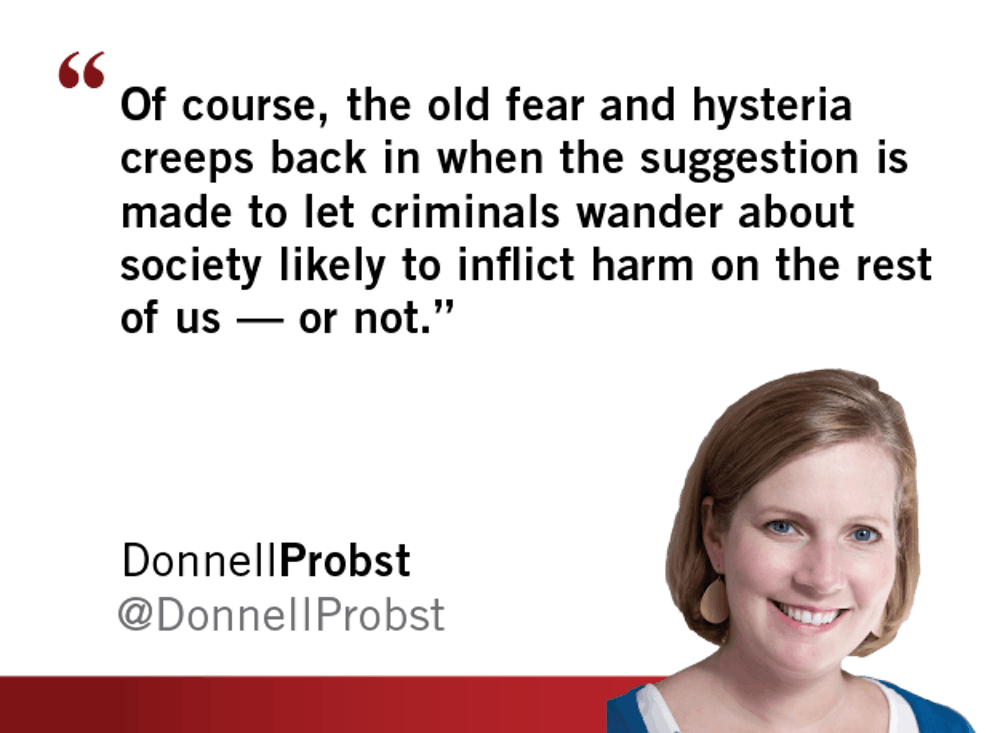Hysteria is the perfect word to describe the public response to media coverage regarding drug use in American history, a trend that has largely contributed to America’s embarrassingly high incarceration rate.
Fortunately, states like California are starting to get it right. Proposition 47, approved Tuesday as state statute in the Golden State, seeks to continue the state’s successful downward incarceration trend, by reducing sentences for minor drug offenses and investing in treatment for addiction and mental health issues instead of prisons.
Much like many of the significant public policy trends in American history, the War on Drugs began as yet another way to discriminate against immigrants and people of color and was fueled by sensational media coverage.
 As policies outlawing the use of opium, cocaine, marijuana and other drugs were enacted throughout the 1900s and efforts to study the effects and safety of these drugs was halted, prison populations in the US increased by 500 percent, with over 50 percent of those individuals incarcerated for drug offenses.
As policies outlawing the use of opium, cocaine, marijuana and other drugs were enacted throughout the 1900s and efforts to study the effects and safety of these drugs was halted, prison populations in the US increased by 500 percent, with over 50 percent of those individuals incarcerated for drug offenses.
During the late 1900s and early 2000s, the War on Drugs was initiated by President Nixon and further funded by Presidents Ronald Reagan and George W. Bush, increasing the American prison population from 41,000 inmates in 1980 to over half a million by 2011.
The result of these heavy handed policies? An overcrowded national prison system that puts petty thiefs and minor drug users behind bars for which Americans cannot afford to pay.
While most states continue to sit on failed prison policies that drain the American pocketbook, states like Oregon, New Jersey and California are taking action.
As California attempts to recover from years of financial mismanagement, prison reform was at the top of the list. Building on previous reforms, Proposition 47 aimed to reclassify many non-violent felony convictions such as petty theft and personal drug offenses to misdemeanors, therefore reducing sentences for those convictions and reducing prison populations by an estimated 10,000 inmates.
The resultant cost savings for the state of California is an estimated $150 million per year — funds that will be transferred directly into proactive, preventative programs focused on drug abuse intervention, mental health services, safe schools, and victim programs.
Of course, the old fear and hysteria creeps back in when the suggestion is made to let criminals wander about society likely to inflict harm on the rest of us — or not.
Studies have shown that the three lone states who have enacted reforms to reduce prison populations are not only failing to experience the increase in crime that many warned about, but have actually seen a faster decline in crime over the past decade than those states who have done little to address issues of prison overcrowding.
So why isn’t the rest of the country jumping on the wagon?
As the media was responsible for the mass hysteria created during the 1980s which lead to widespread support for the War on Drugs, the media surely hasn’t paid the same level of attention to coverage of the counterpoint. The failure of the War on Drugs is largely ignored by mainstream news media, giving Americans little reason to believe there is a benefit to reform.
Perhaps the media can do its part to sensationalize the failings of the War on Drugs and the heavy financial cost to all Americans in the same way it has managed to sensationalize so many frivolous issues and scandals in modern news media.
Reach the columnist at dprobst1@asu.edu or follow her on Twitter @DonnellProbst
Editor’s note: The opinions presented in this column are the author’s and do not imply any endorsement from The State Press or its editors.
Want to join the conversation? Send an email to opiniondesk.statepress@gmail.com. Keep letters under 300 words and be sure to include your university affiliation. Anonymity will not be granted.
Like The State Press on Facebook and follow @statepress on Twitter.




